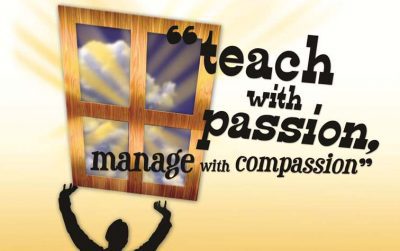We believe in thanking our sources! This post was sourced from the following blog/website:
http://feedproxy.google.com/~r/dangerouslyirrelevant/~3/bFbQQskH4KM/leadership-learning-excerpt-07.html The following is a new blog post related to education and teaching and relevant to our website visitors. The blog post is not based on the opinions or values of our company but is related to education and teaching, so we wanted to share it with YOU! If you ever have any questions please let us know. Now… on to the post!
 [To celebrate our upcoming book, Leadership for Deeper Learning, I am publishing an excerpt each day for a week before its release. We interviewed leaders at 30 different ‘deeper learning’ schools around the world in 2019 and 2020. We then followed up those interviews with site visits, observations, on-site photographs and videos, and additional conversations. Our goal was to try and parse out What do leaders at innovative schools do that is different from their counterparts in more traditional schools? As you might imagine, we saw some fantastic leading, teaching, and learning. We describe what we saw in detail in the new book and, in Chapter 7, articulate a Profile of a Deeper Learning Leader that’s based on empirical research, not just anecdotes. We think that this book makes a unique contribution to what we know about leadership in deeper learning schools. The book is written for a practitioner audience and is full of concrete, specific examples to get folks thinking about possibilities. Also, every main chapter concludes with Key Leadership Behaviors and Support Structures. If you order it, let me know what you think!]
[To celebrate our upcoming book, Leadership for Deeper Learning, I am publishing an excerpt each day for a week before its release. We interviewed leaders at 30 different ‘deeper learning’ schools around the world in 2019 and 2020. We then followed up those interviews with site visits, observations, on-site photographs and videos, and additional conversations. Our goal was to try and parse out What do leaders at innovative schools do that is different from their counterparts in more traditional schools? As you might imagine, we saw some fantastic leading, teaching, and learning. We describe what we saw in detail in the new book and, in Chapter 7, articulate a Profile of a Deeper Learning Leader that’s based on empirical research, not just anecdotes. We think that this book makes a unique contribution to what we know about leadership in deeper learning schools. The book is written for a practitioner audience and is full of concrete, specific examples to get folks thinking about possibilities. Also, every main chapter concludes with Key Leadership Behaviors and Support Structures. If you order it, let me know what you think!]
Excerpt 07
Trusting Teachers as Creative Professionals
As might be guessed in schools that give students high levels of autonomy, throughout our visits we also witnessed leadership behaviors and school structures that treated teachers as creative professionals. The relationship between leaders and teachers in these deeper learning schools might be akin to how a managing partner treats architects in a design firm, for instance. Leaders set a high expectation of professionalism for teachers in the building but then provided the space and support for creativity. Few, if any, ideas were rejected outright. A culture of “Yes, try that!” permeated the buildings that we visited. There were high expectations of professional conduct and student learning outcomes, but those were embedded deeply within a culture of trust and respect.
This culture of trust then extended to the overall vision, direction, and governance of the school. We saw countless examples of teachers who were empowered to take additional – and authentic – leadership roles that went far beyond serving on a committee or helping with a school event. In our conversations, teachers could regularly explain and defend the choices that they made in their classrooms and could link those choices to the overall vision for the student learning experience. Beyond that, however, they also could describe, champion, and advocate for the choices made by the school as a unified team. The pronoun “we” was used consistently in these conversations.
Within these contexts of teacher autonomy and empowerment, teacher professional learning does not fit traditional patterns. Teacher professional development isn’t typically decided by administrators. Teacher professional development isn’t a ‘one off’ or ‘toe dip’ into whatever faddish topic du jour that school leaders think is necessary. At the schools we visited, there were high levels of intentionality, investment, and sustainability around teachers’ professional learning. Those experiences were networked. They were frequently teacher-led. And, most importantly, they were personalized to what individuals and teams of teachers needed, all within the larger context of the vision and goals of the school. In the same way that these deeper learning leaders expected their teachers to meet a high bar of creative professionalism, in turn these teachers expected their leaders to meet that same high bar when it came to fostering adult learning and professional growth within the building.
Leadership for Deeper Learning, Chapter 7

Time To Teach reviews each blog post by our contributors but if you feel this is a blog post better suited for another page please let us know.
Teachers and Educators are our heroes. We want to thank you for the work you do!
Yours In Education!
Time To Teach




 The University of Colorado Denver had a ‘Walk Across the Quad’ event today to celebrate our doctoral graduates. It was a wonderful opportunity to celebrate our students’ resilience and persistence, even during a deadly pandemic.
The University of Colorado Denver had a ‘Walk Across the Quad’ event today to celebrate our doctoral graduates. It was a wonderful opportunity to celebrate our students’ resilience and persistence, even during a deadly pandemic.